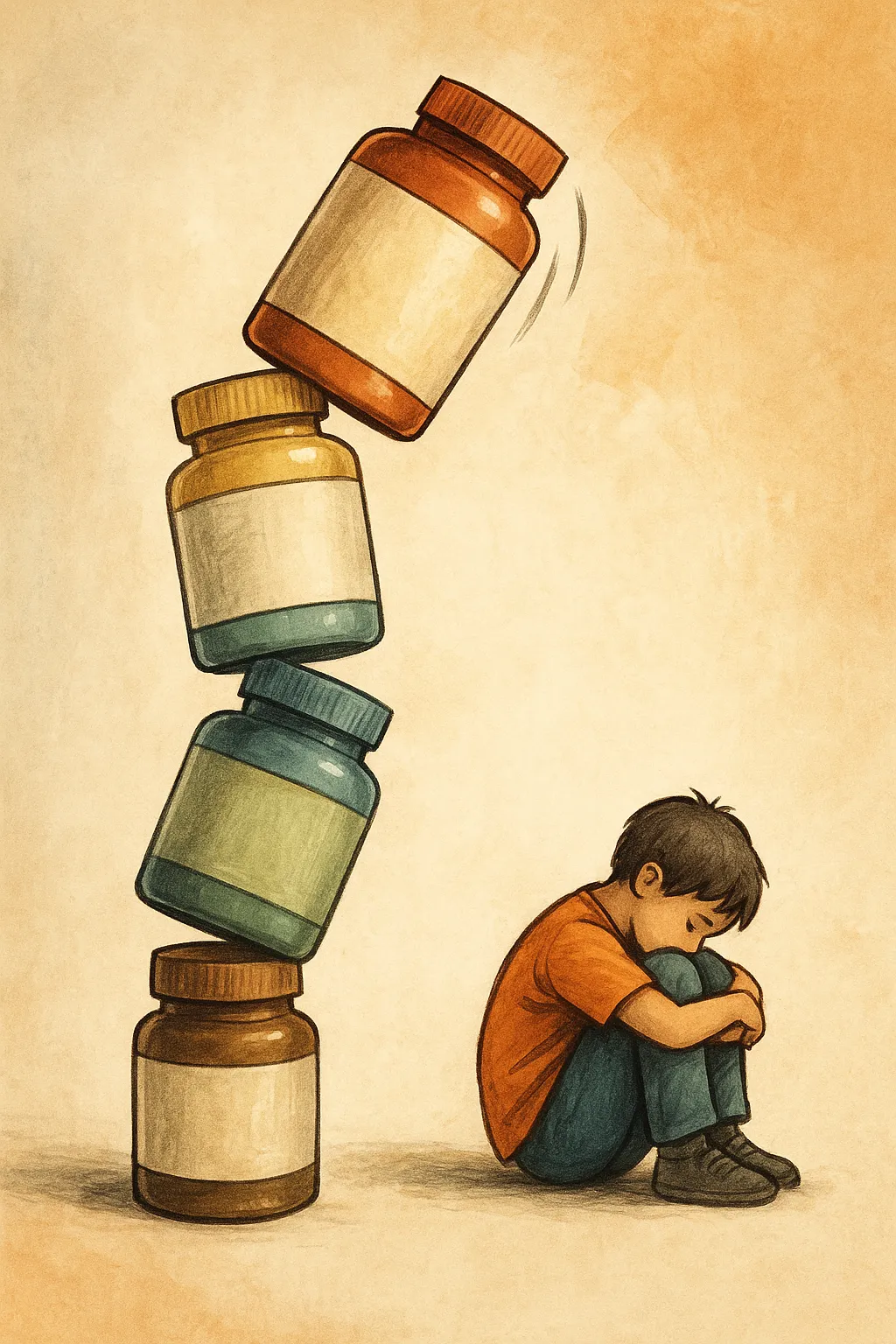Can We Rethink “Support”?

A recent scoping review in Nutrition Reviews by Sabrina dos Santos Serafim, Laís Moraes Sant’Anna and Marina Raijche Mattozo Rover — researchers from the Department of Pharmaceutical Sciences, Graduate Program in Pharmaceutical Services, Federal University of Santa Catarina, Brazil — surveys the use of dietary supplements to manage “symptoms associated with autism spectrum disorder (ASD).” The authors point to oxidative stress as a leading theory for autism’s underlying biology — and suggest that antioxidants and other supplements may help reduce certain behaviors.
At face value, it might seem like a helpful resource. Many families do look for ways to support autistic children — especially in systems where access to care is limited or where they’re left to navigate autism largely on their own.
But the assumptions embedded in this paper deserve closer attention.
Autism, from the start, is framed as a “neurological and developmental disorder” marked by dysfunction. Communication differences, sensory experiences and repetitive behaviors are treated not as meaningful expressions of a different neurotype, but as symptoms of a condition to be mitigated. That’s not a neutral stance. That’s a worldview — one rooted in the idea that autistic people need fixing.
To the researchers: we understand your intentions may be supportive. But support must begin with understanding.
The difference between “reducing symptoms” and “enhancing wellbeing” isn’t semantic — it’s philosophical. If we’re measuring the success of an intervention by how well it masks autistic traits, we’re not improving lives. We’re silencing difference.
Here’s an invitation.
- Instead of asking how we can normalize autistic behavior, what if we asked how we can support autistic people?
- Instead of treating sensory differences as oxidative malfunctions, what if we considered how environments could be shaped to honor those sensitivities?
- Instead of framing repetitive movements as symptoms to suppress, what if we asked what role they serve for self-regulation, joy, or expression?
This doesn’t mean rejecting all biomedical research — but it does mean rethinking our endpoints. Health is important. So is autonomy. So is dignity.
Research that begins with autistic insight — rather than biomedical framing alone — will yield more meaningful results for those of us who actually live these lives.
We don’t need fixing.
We need to be heard.